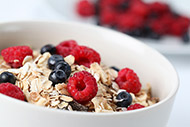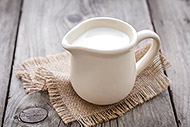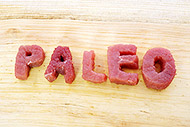
Protein powders were once associated only with weight lifting and building muscle. Due to increased knowledge of the importance of protein and the development of more varieties, protein powders are now common among the health-conscious. Protein powders do have benefits, but do you need to invest in powders, and how will they affect your nutrition? By understanding more about these products, you can decide if protein powders are a good choice for you.
What are protein powders made of?
The most common forms of protein powders are made with whey protein and casein protein, both from dairy, and soy protein from the soybean. In recent years, more options for protein powder have hit the market. Some powders are made from goat’s milk, and some are made from eggs. Plant-based protein powders now also include pea, brown rice, and hemp.
How are protein powders used?
Protein powders are often flavored as chocolate, vanilla, and strawberry and can be made into a shake. These shakes serve as meal replacements or as pre and post-workout snacks. The powders can be added to smoothie recipes and can be stirred into yogurt and oatmeal. They are also sometimes mixed into the batter of breakfast foods to create high-protein muffins or pancakes.
What are the pros and cons of using protein powders?
These powders can help boost your protein intake. They may be especially helpful during times of increased protein need, such as when training for an event or when recovering from injury. Protein powders are also convenient because they don’t require cooking, nor are they perishable like many other protein sources.
While these powders may be helpful and convenient, many health experts suggest that you can get the protein you need through food without the addition of powder supplements. These powders can be an expensive investment that isn’t necessary to improve fitness or build muscle. Since they are consumed in liquid form, they can be less filling than eating solid foods. They can also be highly processed with sweeteners and other additives so read ingredient labels closely. Also, remember that these powders contain calories. One scoop has as much as 170 calories, but many brands range from 90 to 110 calories per scoop. Loading up on protein powder through high-calorie protein shakes may not be the best option if weight loss is your goal.



 3 Healthy Lunches for Your Work Week
3 Healthy Lunches for Your Work Week
 5 Tips for Stretching Your Budget for Healthy Food
5 Tips for Stretching Your Budget for Healthy Food
 Best Ways to Reduce Added Sugar
Best Ways to Reduce Added Sugar
 Healthy Tips to Lighten Up Picnic Foods
Healthy Tips to Lighten Up Picnic Foods
 Do You Need to Drink Milk?
Do You Need to Drink Milk?
 Tips to Keep Track of Water Intake
Tips to Keep Track of Water Intake
 What Is a Paleo Diet?
What Is a Paleo Diet?
 Eating to Build Muscle
Eating to Build Muscle

 Pinterest
Pinterest RSS Feed
RSS Feed